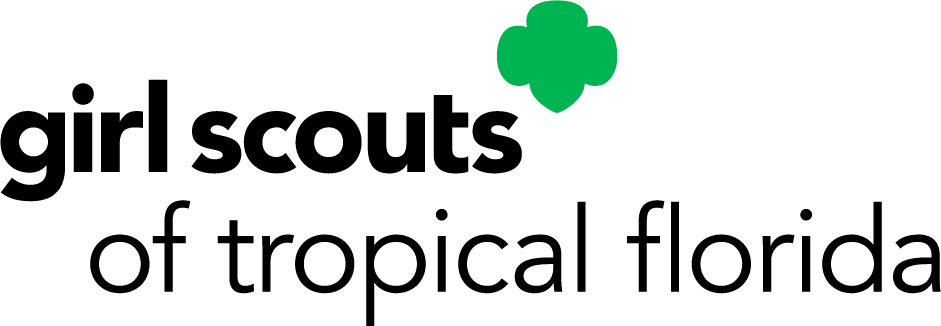Girl Spotlight: Gold Award Girl Scout, Ocean L.
Girl Scouts’ dedication to our community goes beyond its members and brick and mortar establishments, it also includes the importance of sustaining the native flora and fauna surrounding us. Key West resident, Ocean Leto’s Girl Scout Gold Award project is dedicated to reducing air pollution while promoting biodiversity of our natural heritage through saving native and endangered plant life in and around her local community. Ocean’s efforts resulted in a wealth of newfound skills including architecture and design as well as the development of interpersonal skills. These talents will help continue to serve Ocean well into her future. Read on to learn more about Ocean’s efforts, which included the development of a screen house and the launch of several ongoing community partnerships like the Botanical Gardens of Key West.
Girl Scouts’ dedication to our community goes beyond its members and brick and mortar establishments, it also includes the importance of sustaining the native flora and fauna surrounding us. Key West resident, Ocean Leto’s Girl Scout Gold Award project is dedicated to reducing air pollution while promoting biodiversity of our natural heritage through saving native and endangered plant life in and around her local community. Ocean’s efforts resulted in a wealth of newfound skills including architecture and design as well as the development of interpersonal skills. These talents will help continue to serve Ocean well into her future. Read on to learn more about Ocean’s efforts, which included the development of a screen house and the launch of several ongoing community partnerships like the Botanical Gardens of Key West.
Describe Your Project
By planting native plants and constructing a screen house, I hope to increase awareness for, and help cultivate native species of plants unique to Florida Keys and the greater Caribbean. Building a screen house helped provide a space to showcase local and endangered plants including the Bird Pepper, the Everglades Tomato plant and the Rough Strong Back Tree; where there are only 4 of in the world, all of which can only grow and be found in Key West. Native flowers also promote the growth of the diminishing pollinator population in the Caribbean.
How is your project sustainable?
The screen house will continue to aid in educating high school students after my graduation by providing an opportunity for students to learn about our native species, pollinators, and gardening. Clubs including the Keys to Be the Change are very interested in utilizing the space and taking care of the plants. The endangered species planted will be registered with the state of Florida by the Botanical Gardens.
What gave you the inspiration to approach this topic the way that you did?
The Botanical Gardens of Key West taught me the significance of endangered plants and the different pollinators that depend on them. Learning and conducting research has made me very appreciative and respectful of local and endangered species.
Why is this project important to you, personally?
The Florida Keys offer a unique and captivating environment that I have had the privilege of growing up in. Our community has lots of really neat plants that go underappreciated and worse, completely unheard of. I want to do my part in sparking the conversation about just how important local species are and the role we can play in helping to conserve them.
What was the biggest challenge you overcame and how?
When planning to build the screen house, I had little experience in construction, and learned through trial and error. My trial and tribulations included ordering wood from a lumber company, drawing dimensions and architecture plans for screen house plans, and getting a gauge of how much labor would be needed for each step in the process. My dad offered advice on what hardware and materials were needed, and my project mentors Debbie Clem, Nicole Lam, and Mary Nelson helped tremendously with information about installing the plants and caring for them long term by creating the perfect environment.
How does this project contribute to your goals for the future?
Setting up interviews, meetings, and recruiting volunteers has taught me a great deal about how to take initiative and how to manage communications. As I graduate high school, my goal for the future is to be able to reflect on the skills I've learned from this project and hone
them during my college career to further develop my character as an adult while helping others in need. After college I have intentions of enlisting in the military.
What did you learn about your community in this process?
I learned there are a number of challenges that our community faces as it relates to the sustainability of species local to Key West. By working with the Botanical Gardens and the City of Key West arborists, I learned that many arborists and gardeners have been trying to raise awareness for our local plants for years. I also learned that as real estate developers continue building in Key West, there has been an increased tendency to plant non-native or invasive species which impacts our local flora. Maintenance crews also often over trim or cut down native or endangered trees which is a big problem.
What did you learn about YOURSELF?
I learnt that to get a project done, it takes a lot of responsibility to follow it through. I've never embarked on a project as big as this before and working through each step with all the volunteers has been very rewarding and I could not have done it without them.
“Girl Scouts has made me a Leader”

